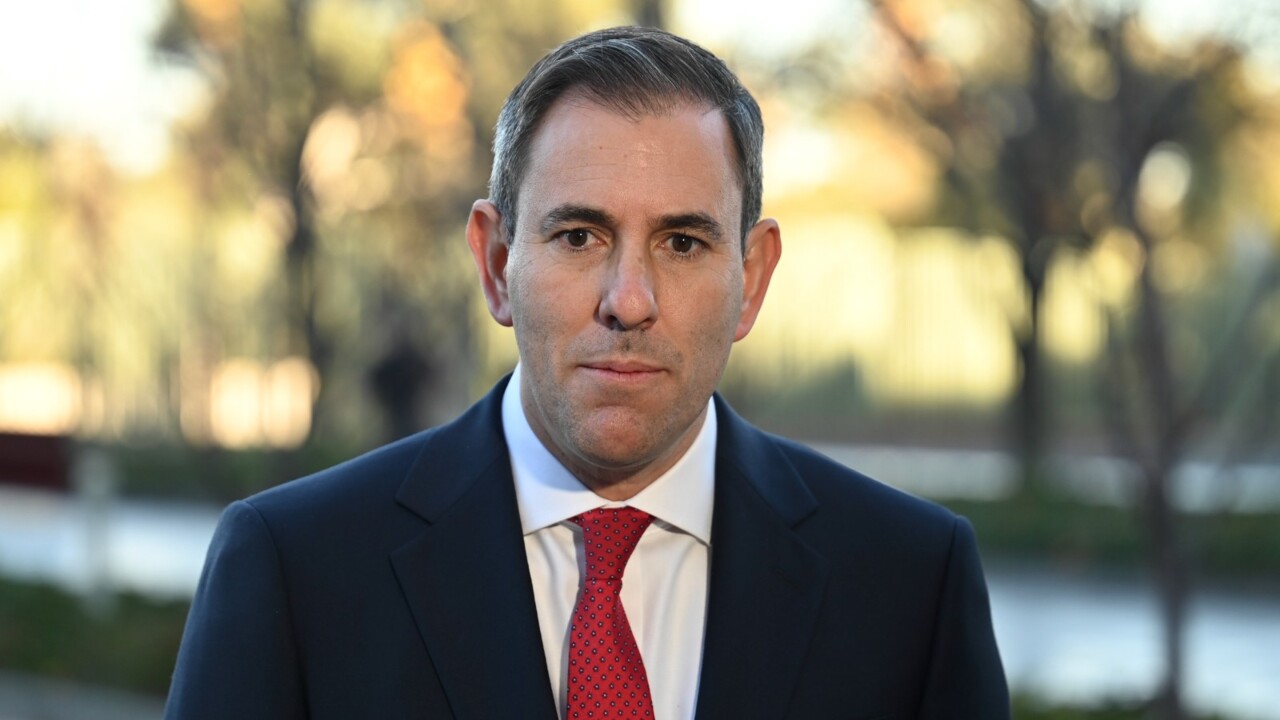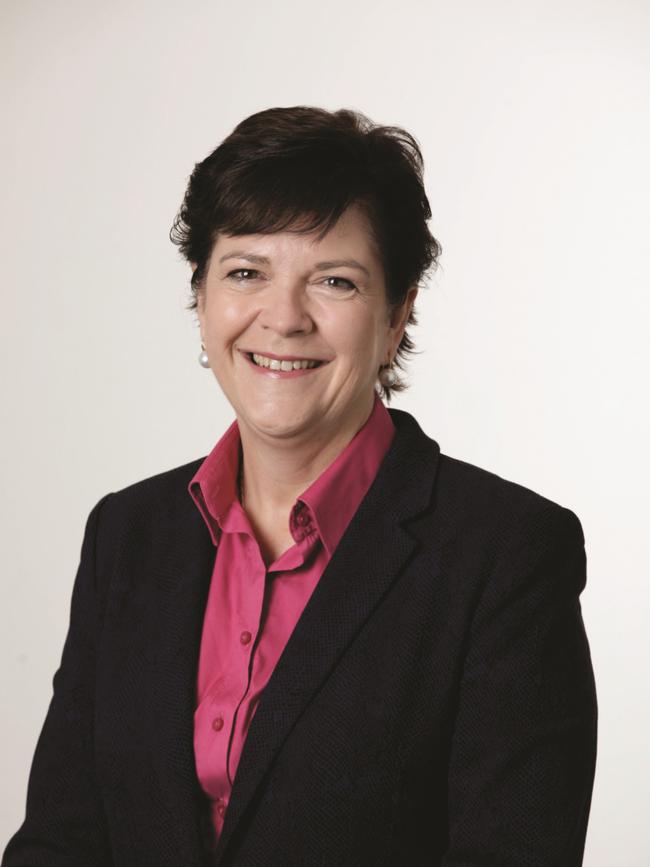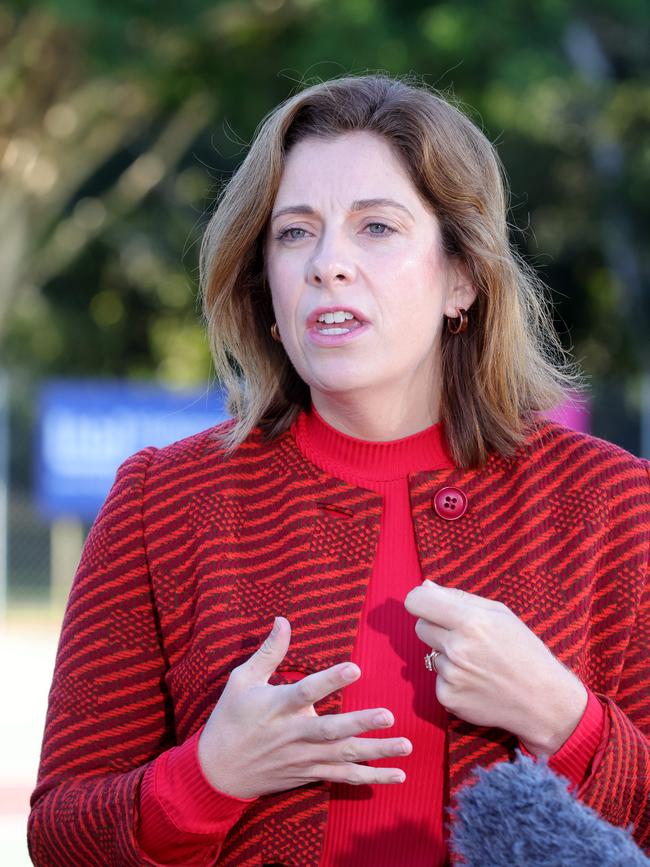Fears that time is running out for aged-care reforms as election closes in
Members of Labor’s hand-picked aged-care taskforce are warning time is running out in this term of parliament to put the sector on a financially sustainable footing.

Members of Labor’s hand-picked aged-care taskforce are warning time is running out in this term of parliament to put the sector on a financially sustainable footing, as new data reveals half the nation’s 2600 nursing homes are running at a loss.
They fear the government no longer has the “parliamentary runway” to pass new laws that would help keep hundreds of struggling nursing homes financially afloat and resurrect investor confidence in the sector.
The legal changes that would deliver the taskforce’s key recommendations – including that wealthier older Australians make larger co-contributions to their daily living and accommodation costs in aged care – are bogged down in negotiations between the government and the Coalition.
If passed, the reforms would mean older Australians with the means to do so would pay more for nursing home rooms, meals and everyday living costs such as cleaning, while those getting in-home care packages would contribute more for services such as cleaning and gardening.
Aged-care providers say the greater financial certainty would turn around years of losses and encourage more building of much-needed nursing homes, while consumer groups say the proposed reforms would give older Australians better quality care and more say in how it’s delivered.
Having received the taskforce’s final report in December, the government is looking to dovetail its response into a broader legislative program that includes the new aged-care act recommended by the aged-care royal commission. It hopes to negotiate bipartisan agreement on its response to the taskforce recommendations, but talks with the Coalition have dragged on for months, leaving the sector increasingly concerned.

The final straw was when the parties failed to reach agreement ahead of the midwinter parliamentary break.
Peak provider advocacy group Aged and Community Care Providers Association chief executive Tom Symondson, a taskforce member, said the failure of the two major parties to reach consensus on a response to the review leaves the passage of enabling legislation at significant risk of being delayed beyond this term of parliament. “If it’s not sorted very quickly, and introduced first up in the next sitting, the parliamentary runway starts to get very short,” Mr Symondson said.
“There has to be time factored in for an inquiry in the Senate, which will be some months, and then it’s Christmas, and then we start gearing up for an election.
“This does have to be done, and with bipartisan support, because if we don’t get that the risk of it not getting through at all is massively increased.”
Mr Symondson said the consequences of delaying the legislation beyond the next election was more residential care and home-care providers going to the wall, and a lack of confidence to invest in new stock and businesses.
“We’re building a fraction of the beds we need each year because the investment climate is not there. One of the outcomes of the taskforce response was that banks and commercial operators would want to invest in our sector. But at the moment there are more ‘no vacancy’ signs in residential care at a time more people are needing a bed.”
Another taskforce member, aged-care accountant Grant Corderoy, said the sector had become increasingly anxious about the delay. He called on the government and opposition, including the crossbenches, to “provide a clear and unambiguous statement as soon as possible to provide some certainty to the sector.”
“Delaying such a statement or overall response from the government will only cause further unease,” Mr Corderoy said.
He said the recommendation to require older Australians with means to pay more for accommodation and non-direct care components of aged care had already “met with a high level of acceptance” within the community.
“Those reforms could help improve the financial sustainability of a sector that has undergone operating losses for the last four financial years, with a further loss likely for FY24,” he said.
His latest StewartBrown quarterly report on the financial state of the sector, to be released on Monday, reveals some improvement in residential care, though this can largely be attributed to homes receiving government funding for care support they are unable to deliver due to staffing shortages.
“For the March 2024 nine-month period, 50 per cent of aged care homes continue to operate at a loss, (compared to) 64 per cent for the same nine months to March 2023,” the report says.
Aged-care provider Uniting NSW/ACT executive director Tracey Burton said while the political will for change was there, the reforms were needed urgently. “We are concerned that time is running out for this parliament to implement meaningful aged-care reform before the next election, while the sector struggles with uncertainty and ongoing financial pressures,” she said.


“The people who will suffer the most are older Australians stuck in hospitals waiting for a bed in residential aged care. We want to build those beds but can’t commit to new developments or redevelopments until the funding model is clear. We would ask all sides of parliament to make this a priority when they return from the winter break.”
Consumer groups are equally concerned about the delayed response to the taskforce recommendations. Older Persons Advocacy Network chief executive Craig Gear said many older people he had spoken to were “dismayed at the prospect of the new Aged Care Act being delayed yet again”.
“We’re more than three years on from the royal commission’s final report,” Mr Gear said. “It is time for providers to get out of the way and for all sides of government to resolve any outstanding issues. This crucial piece of legislation has the capacity to change the culture of aged care in this country. The bill must be put before the parliament without further delay.”
Aged-Care Minister Anika Wells said the taskforce reforms were “once in a generation (and) we are working every day to ensure we get it right”.
“We are working with the opposition to advance these reforms so older Australians and their loved ones have high quality care now and into the future,” she said.
“The Albanese government has already implemented its five core aged-care election commitments, including 24/7 nursing (and) a record $11.3b pay rise for aged-care workers.”
Opposition aged-care spokeswoman Anne Ruston said the Coalition had “provided a clear offer of bipartisanship on sensible aged-care policies in recognition of the importance of a strong, dignified and world-class aged-care system to support our ageing population.
“We remain in good-faith conversations with the government. We look forward to receiving the information we need to better understand their plans for the future of the aged-care sector,” Ms Ruston said.
“The Coalition has been consistently calling on the government to release their plans for public consultation.”







To join the conversation, please log in. Don't have an account? Register
Join the conversation, you are commenting as Logout